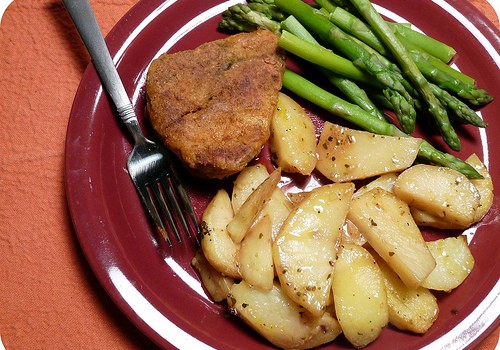
Going Green: Vegetarian or Vegan
The difference between vegan and vegetarian is that vegans eliminate all sources of animal products from their diet including dairy products and eggs. Whereas vegetarians cut out meat fish and poultry but still eat dairy products, but some vegetarians cut out eggs, others dairy and some don't eat gelatine or meat based products. It is merely a personal choice as to which of the two to go green but both have risks when it comes to nutrition and replacement products will need to be consumed as many meat products contain essential proteins and vitamins. Many vegetarians and vegans do not wear fur or leather as well.
- Important notification about information and brand names used in this slideshow!
- Photo courtesy of madame.furie by Flickr : www.flickr.com/photos/madame_furie/3650560648/
- www.aarp.org/food/diet-nutrition/info-02-2011/9-pros-and-cons-to-going-vegan.html
- http://www.nomeatathlete.com/7-things-that-suck-about-being-vegetarian/
- http://vegetarian.lovetoknow.com/Disadvantages_of_Being_a_Vegetarian
- http://www.livestrong.com/article/85540-disadvantages-vegetarian-diet/
- http://www.nomeatathlete.com/7-things-that-suck-about-being-vegetarian/

Health benefits of being vegetarian
Becoming a vegetarian does not automatically mean you become healthier, you still need to eat a balanced diet. However there are some benefits to a meat free diet, studies have shown that eating less meat can decrease the risk of heart disease which is the number one killer of women in the US. Secondly, the British Journal of Cancer saw a connection between red meat eaters and breast cancer which shows a possible decreased risk for vegetarians. And a relatively unusual health benefit is eating green can lower the amount of carbon dioxide emissions emitted to the atmosphere.
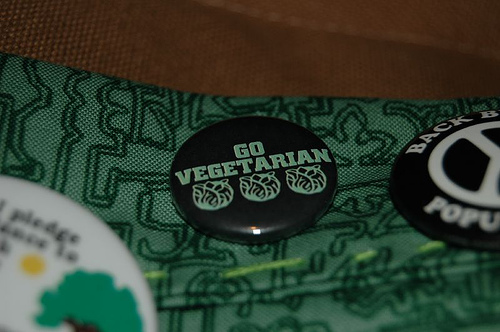
Making radical change
Making the change to vegetarianism is not an easy one, it can have repercussions on your body while it adjusts. When you initially start eating green you need to make sure that you keep up a healthy balanced diet and often supplementing the vitamins and minerals that are found in meats can help make the change easier. Multivitamin supplements are widely available and proteins can be found in many nuts and beans and can be added to your diet. But the biggest decision is how far you are prepared to take the cause, if you are going to cut out dairy and eggs or simply just meat. Eeating out can become a challenge as you can never be 100% about where and how the food is being prepared.
- Important notification about information and brand names used in this slideshow!
- Photo courtesy of Stephani by Flickr : www.flickr.com/photos/dalismustaches/206115517/
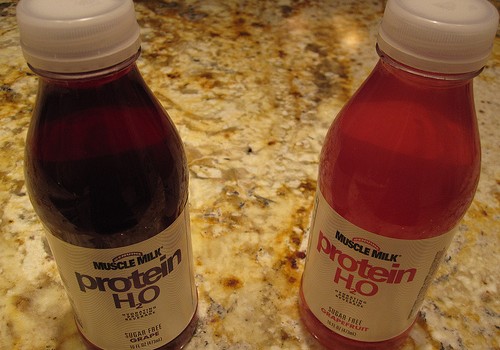
Not enough protein
The biggest risk to not eating meat and fish is a lack of protein which can cause you to feel weak and tired. There are a few signs to look for to identify when you have a protein deficiency. Feeling tired when you shouldn't be is a key symptom, often vegetarians find that their energy levels are more stable after cutting out meat and if you start to feel unusually tired it means your protein is too low. Also feeling weak or gaining excess fat in places where muscle used to exist. If you do not take enough protein in your diet your muscle cannot be repaired and rebuilt so you will start to lose muscle tissue and become weak.
- Important notification about information and brand names used in this slideshow!
- Photo courtesy of Marc David by Flickr : www.flickr.com/photos/marcdavid/4542493406/
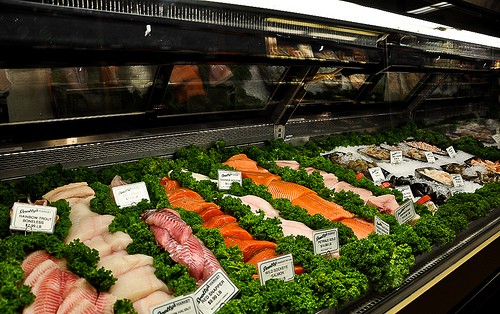
Four Main Mineral Deficiencies
Essential minerals that you need to make sure you have in your diet if you are a vegan or vegetarian are iron, zinc, calcium and iodine. Iron is essential for the body and it is found in a lot of plant foods but it cannot be absorbed as easily as iron in meat. Zinc is essential to perform life sustaining reactions and functions in the body and development of the immune system. Cacium is needed for strong bones and teeth, lack of calcium leads to bone density being low and the risk of osteoporosis. iodine is needed for the thyroid gland and hormone secretion and without the correct levels of hormones our bodies cannot function correctly. These four are the most common deficiencies that are found in vegetarians.
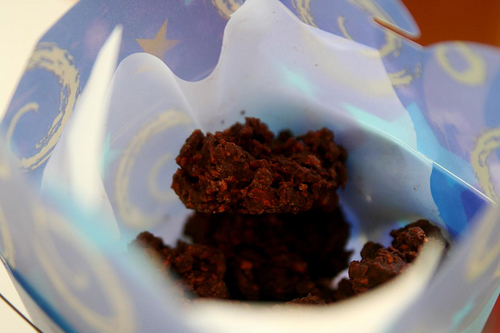
Meal choices can seem limited
One of the biggest drawbacks of being a vegetarian is the lack of choice that there appears to be, usual meals centralise the meat aspect and most main courses are a meat based meal. And as a vegetarian you have to change your whole approach to meal times and look for substitutes instead of simply what you might like. For example to include minerals in your diet certain oils will need to be used or including lentils in soups or salads to increase both the protein and mineral intake. Sometimes you want a hearty warm meal but vegetarianism doesn't sound particularly appealing on a cold winters night so you need to plan to fit the diet into your lifestyle.

Eating out in restaurants may be a problem
As mentioned before eating out can be a problem when you are a vegan or vegetarian. Mainly because not all restaurants fully understand the diet and sometimes the veg option is very boring and limited to a salad or vegetable lasagne or similar. So its good to find out which restaurants provide the best options as some actually have a range of dishes to choose from. But the biggest challenge is knowing if the food is prepared on the same surfaces or grills as meat products which would not be right. Don't be afraid to ask but this can be difficult if out with a group of friends as you wouldn't want to seem the difficult one.

Making dinner for friends too
Being a vegetarian is a personal choice and doesn't mean your friends will always agree. So when its your turn to host the dinner party what do you do? Serve vegetarian meals to everyone knowing they may not be entirely happy? But they wouldn't make you eat a meat dish if you went their house! So it becomes a task of possibly making two versions of a dish however as a vegetarian you will not feel comfortable cooking with meat as it goes against the choice you have made. There is no easy answer but possibly finding a dish that a meat eater wouldn't mind is probably the best option.
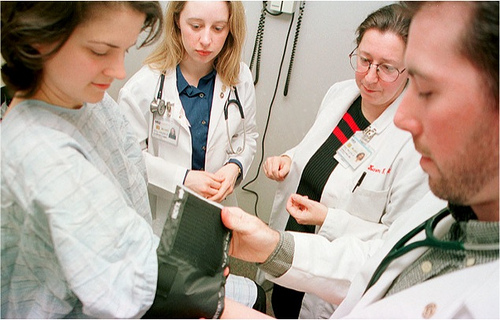
Potential interference with existing medical conditions
There is a huge potential that changing your diet can interfere with any existing medical conditions. Such conditions could be attributed to a deficiency of certain minerals such as iron. anaemia can be caused through lack of iron and if you have this condition becoming a vegetarian is only going to worsen the problem if you do not pay special attention to your diet. Also other viruses or infections can be worsened due to the lack of support for your immune system, and sufferers of muscular problems or weakness will find that vegetarianism may worsen the condition without significant support.
- Important notification about information and brand names used in this slideshow!
- Photo courtesy of University of Michigan MSIS by Flickr : www.flickr.com/photos/umich-msis/6550246715/
- www.health.harvard.edu/newsletters/Harvard_Womens_Health_Watch/2009/October/becoming-a-vegetarian
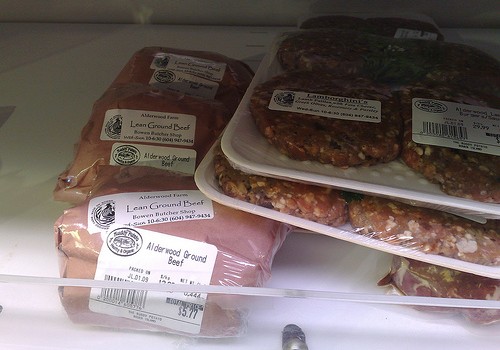
It’s not meat, but it doesn’t mean it’s vegetarian (Reading labels all the time)
Just because something isn't meat doesn't make it safe for a vegetarian to eat. Choosing this lifestyle is a big commitment and it means having to check everything you buy by reading the labels. Simply because some foods can be prepared where other meat products are packed or cooked or they may actual contain animal proteins which have been added later. This can be a laborious task checking and double checking everything you buy but if that's the life you want then you have to commit to it. Most labels will say if foods are suitable for vegetarians now so its worthwhile looking for the symbol.
- Important notification about information and brand names used in this slideshow!
- Photo courtesy of Boris Mann by Flickr : www.flickr.com/photos/boris/3691805677/


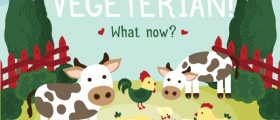




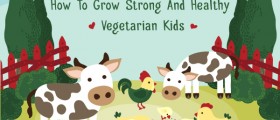

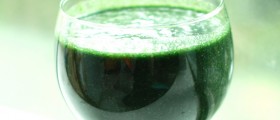




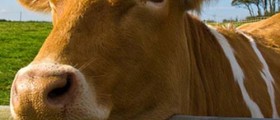

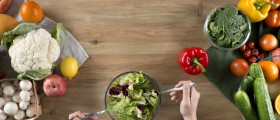
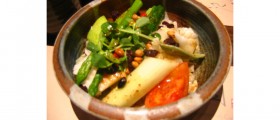



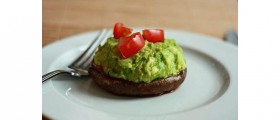

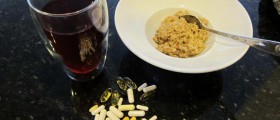
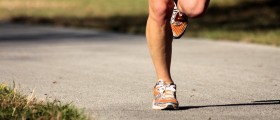
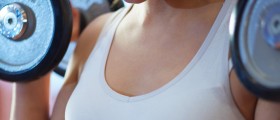

Your thoughts on this
Loading...